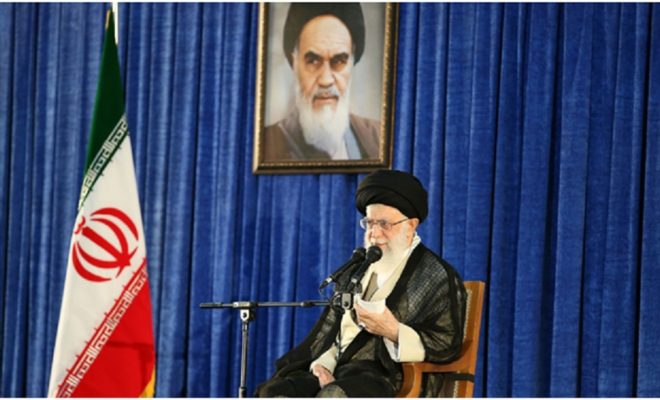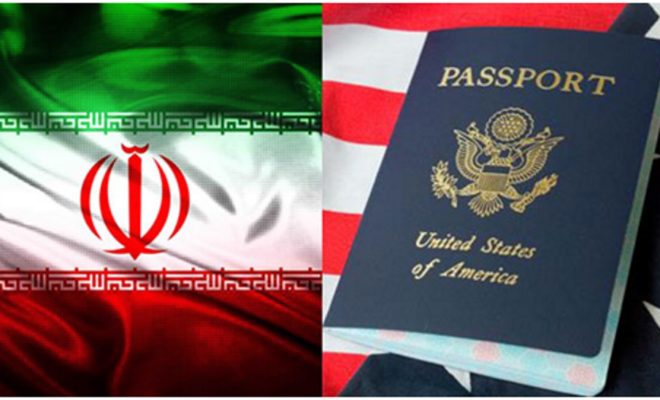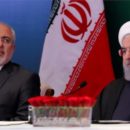Iran Exploits the Global Financial System for Illicit Purposes, Treasury Official


JENNA LIFHITS | June 5, 2018
Under secretary Sigal Mandelker warns companies about the risks of dealing with the Islamic Republic.
A top Treasury official issued a stark warning to companies the world over on Tuesday about the risks of doing business with Iran, describing the Islamic Republic as a regime that deceptively exploits the international financial system to fund its nefarious activities.
“The Iranian regime will deceive your companies, undermine the integrity of your financial systems, and put your institutions at risk of our powerful sanctions, all to fund terrorism, human rights abuses, and terrorist groups,” said Sigal Mandelker, under secretary of the Treasury for terrorism and financial intelligence, in remarks at the Foundation for Defense of Democracies. “You must be proactive in these efforts as Iran continues to search for ways to take advantage of your companies and countries.”
Mandelker stressed that Iran systematically uses subterfuge and deception to fund its support for terrorism, human rights abuses, and other activities. Its methods include the use of front and shell companies, forging documents, and “hiding illicit activities under official cover.”
The risks of doing business in Iran are high, she suggested, not least because companies could get caught up in impending U.S. sanctions that had been lifted under the deal. She suggested that there is also the risk of running into fresh sanctions that the Trump administration has imposed since its withdrawal from the nuclear deal.
“As we bring our massive economic pressure to bear on the regime, we will continue to shine a light on Iran’s destructive activities and target Iran’s efforts to deceive the international community, undermine the international financial system, and violate the laws of our allies and partners,” Mandelker said. She urged U.S. allies to join in condemning Iran’s deceptive practices.
President Donald Trump’s announcement last month that the U.S. would be withdrawing from the Iran nuclear deal left European countries, who said they will stay in the deal, scrambling to ensure the flow of economic benefits to Tehran. Trump said the U.S. would be re-imposing the “highest level of economic sanctions” that were lifted under the agreement.
European officials have recognized the difficulties of shielding firms from U.S. secondary sanctions, including that companies will ultimately make their own decisions about staying or leaving the Islamic Republic. A number of key European firms have already said they will be ‘winding down’ business in Iran to avoid U.S. sanctions.
Mandelker advised companies and countries that do business in Iran to perform extra due diligence, harden their financial networks, and be upfront about “the very significant risks” of doing business there.
“To those in the private sector, I urge you to also take additional steps to ensure Iran and its proxies are not exploiting your companies to support their nefarious activities,” she said. “You may think your clients and counterparties are legitimate companies. But they may in fact be part of the Iranian regime’s deceptive schemes to fund terrorism and human rights abuses.”
Among the proposals floated by the European Union to maintain economic benefits to Iran is one that could have governments conducting “one-off bank transfers” to Iran’s Central Bank—an effort to avoidthe U.S. financial system. Mandelker said Tuesday that Iran’s Central Bank is complicit in financing its elite Quds Force, which has been designated by the EU and the U.S.
“In any legitimate country, if a central bank or its governor was complicit in financing a terrorist group, that central bank governor would be fired … and prosecuted for providing material support for terrorism,” she said, later adding, “Don’t be fooled when you’re dealing with the Central Bank of Iran.”
The Treasury undersecretary further explicitly called out Iran for using commercial airlines to ferry weapons, equipment, and more to international locations, particularly Syria.
“The world must open its eyes to Iran’s military support to Assad,” she said. “Those in the civil aviation industry around the world must be vigilant. They should implement appropriate controls to ensure compliance with their legal requirement.”
The administration in May penalized entities that it said were helping sanctioned Iranian airlines procure parts.
Secretary of State Mike Pompeo said last month that teams of specialists will be traveling to relevant countries to discuss the impending U.S. sanctions. He warned that those conducting prohibited business in Iran will be held accountable.
“Any time sanctions are put in place, countries have to give up economic activity,” he said.
Pompeo also laid out 12 conditions that he said Iran must achieve in order to see relief from the coming “unprecedented financial pressure” by the U.S.
“Relief from our efforts will come only when we see tangible, demonstrated, and sustained shifts in Tehran’s policies,” Pompeo said. “We’re not asking anything other than that Iranian behavior be consistent with global norms.”
JENNA LIFHITS is a staff writer at The Weekly Standard.








